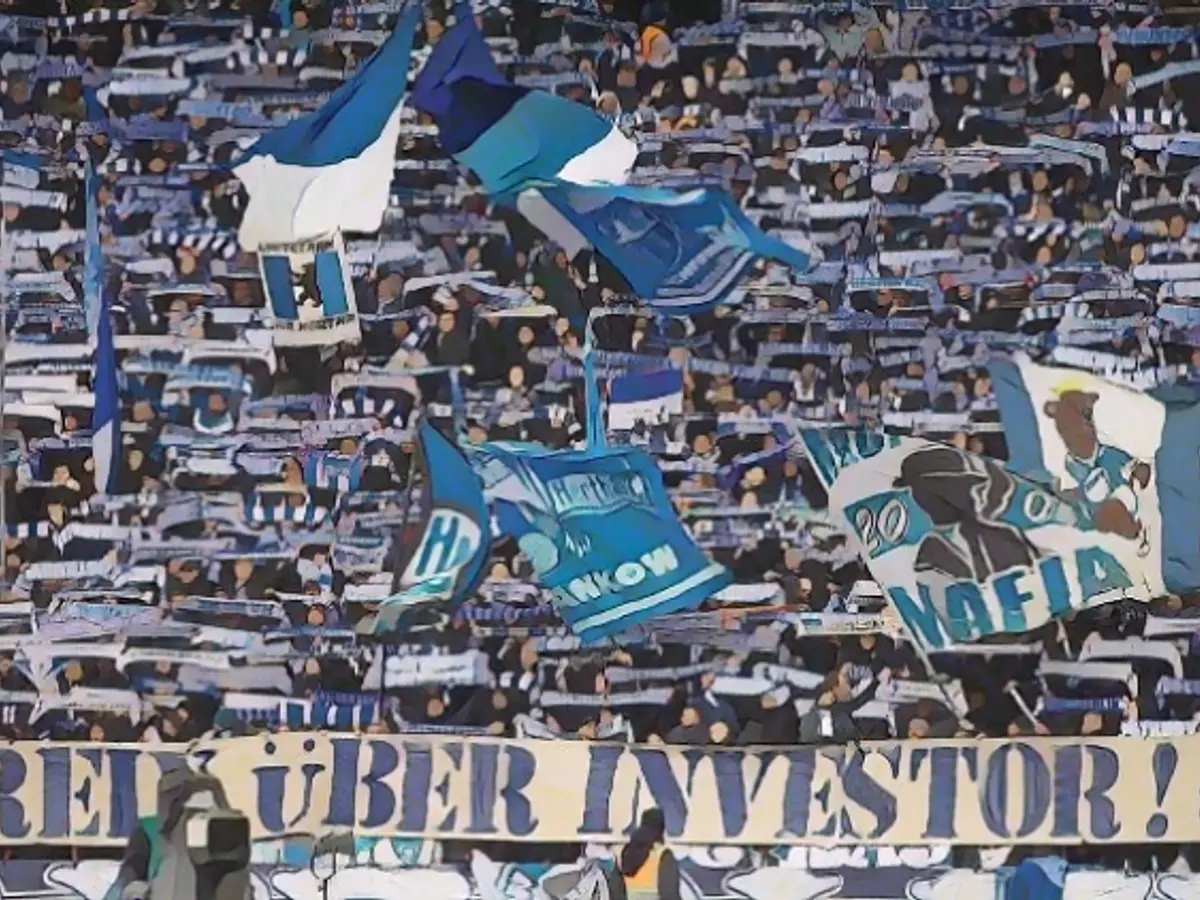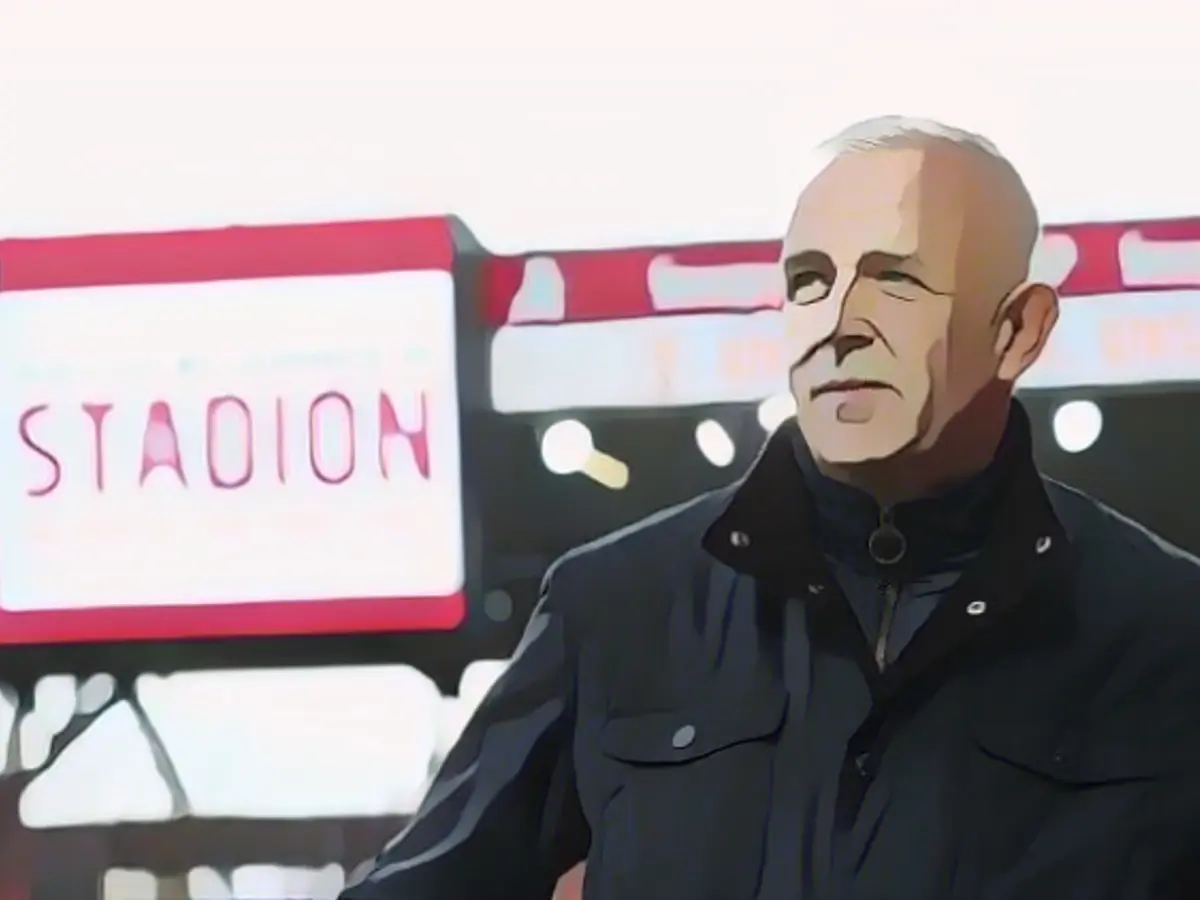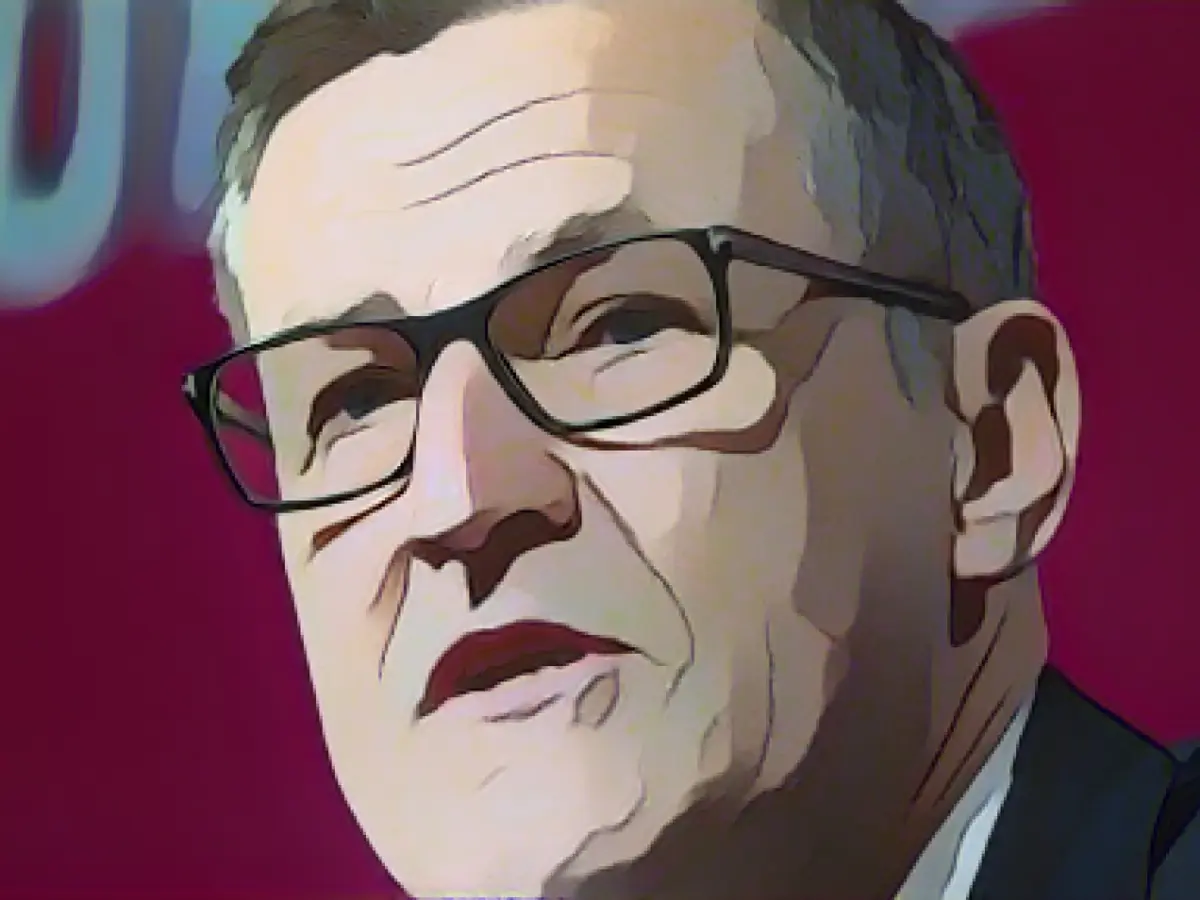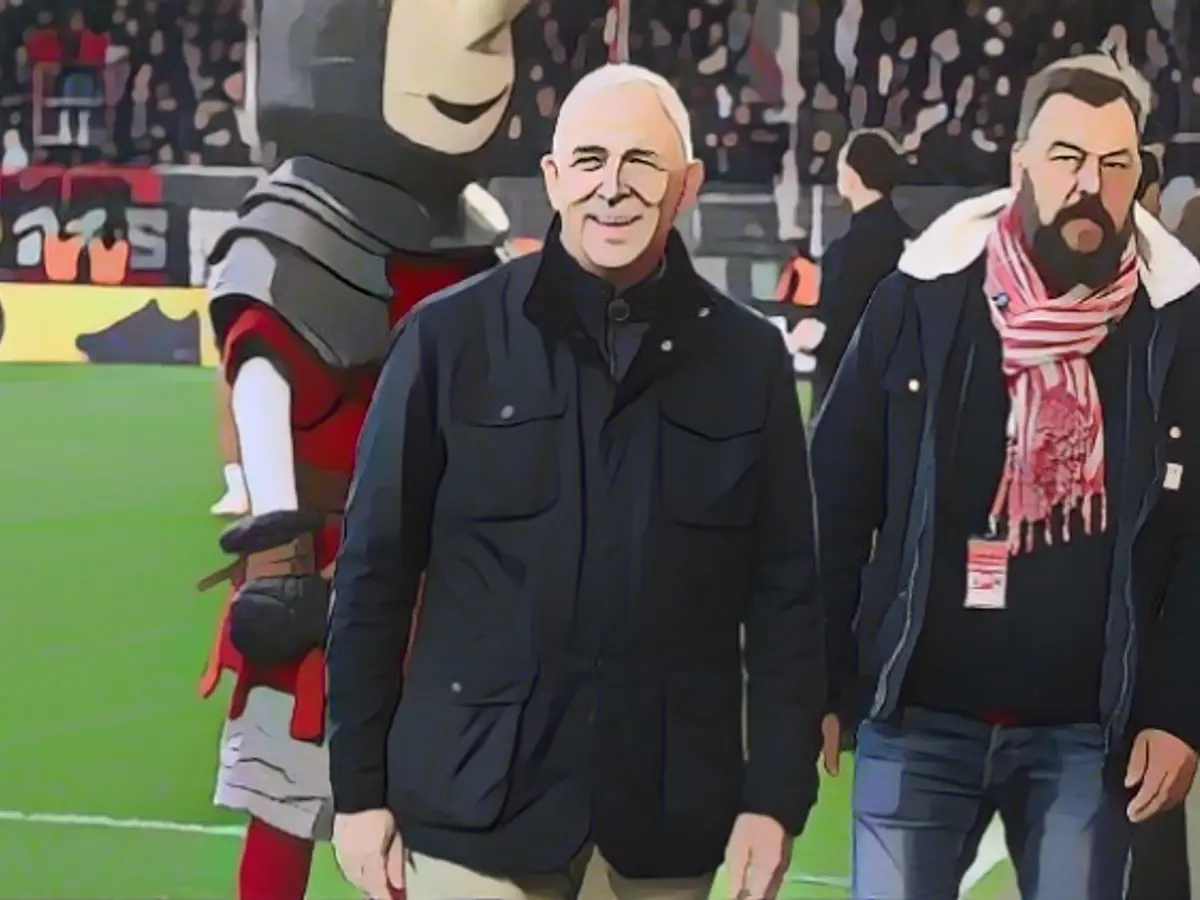Is Football (Soccer) In Its Death Throes, Mr. Golz?
Many fans are outraged: professional clubs are paving the way for an external investor to join the German Football League. "Money is perpetually tight in football," says Richard Golz. He has played 453 Bundesliga matches and now advises the management of sports clubs.
On Monday, the DFL member clubs approved the sale of the media shares to an investor by a narrow majority. Fans have been up in arms about the decision for months. Did football die on Monday?
Richard Golz: No, we're a long way from that. As often is the case, the truth lies in the middle. The clubs have an insatiable hunger for investment and competitive pressure. So, they inevitably have to talk about revenue pots. However, there are points that the fans understandably highlight.
Where?
I'm thinking of ticket prices, for example, which are comparatively affordable in Germany. An investor naturally has a vested interest in increasing the clubs' income. And, given the high demand, that would be possible with ticket revenues. This could change the atmosphere in the stadium, giving rise to concerns among fans that German football might become more expensive and the atmosphere more sterile. I can empathize with these fans who fear that their beloved sport might become a commodity.
But ticket prices aren't affected by the sale of TV rights, are they?
No, not directly. But everything is interconnected in football. The bigger and more profitable a club, the better players it can sign. This makes the league more attractive, which in turn increases media revenue. It's a difficult balancing act that requires careful consideration and transparency.
Many fan groups have already announced further protests. What can the clubs expect?
The usual – protests in the form of banners, whistles, and so on. But the clubs and the DFL must face this unrest now. There's no point in dealing with the issue defensively. They should seek to engage with the fans and listen to their concerns. That's why I don't think much of the fact that the vote was held in secret.
Did Hannover 96's president Martin Kind overrule the club's own position and agree to the deal? And, with one less vote in favor, the deal wouldn't have gone through?
It's hard to say. There are certainly questions surrounding the deal, and it's put a strain on the entire issue, including the 50+1 rule. I think we need as much transparency as possible, and not just now. That's precisely why the vote shouldn't have been held in secret.
Was there a lasting rift between fans and clubs on Monday?
I don't think so. It's still too early for that – the deal hasn't even been finalized yet. As I said, this process must now be as transparent as possible, including for the fans.
Nevertheless, is football in financial distress that it's resorting to such measures?
Even if you don't believe it, money is perpetually tight in football. There are always clubs that are in financial trouble. At the moment, however, I would say that most clubs are doing better again after COVID. So, the deal wasn't necessary out of sheer desperation.
The first vote in May didn't achieve the necessary majority, but now it has. What was different this time?
The framework conditions were completely different back then. Ultimately, there were no negotiating partners for potential investors after the departure of Donata Hopfen in May. Many clubs then felt blindsided because nobody knew exactly how much money was involved. Nobody knew exactly how the money would be distributed, how much influence the investor would have. The entire first draft was not good, both in terms of content and communication. Now they've taken a more cautious approach, even though they should have communicated more with the fans. But I don't want to deny the new DFL management's sensitivity. I think Marc Lenz and Steffen Merkel have tried to ensure a good process so far.
In their statement, Lenz and Merkel used the term "red lines" for the potential investor a dozen times, which also means that there should be no influence on the day-to-day business of the DFL. Why isn't this message getting through to the fans?
There is a general fear of investors and of football being sold off. And, as I said, this isn't unfounded. But we are still very different from England, Spain, or France. The 50+1 rule is our greatest asset.
Many clubs are clearly acting against the interests of their own fans. Is 50+1 dead now?
You have to differentiate between the Ultras and the wider fan base, who still want to compete in Europe. But yes, I can't completely resolve the contradiction.
The new deal – 8% of the media rights for 1 billion euros – is worse in terms of the percentage than the 3 billion euros for 12% that was previously on offer. Is this really for the better?
Yes, this question is obvious. The only way I can explain it is that the clubs have fewer concerns about inequality. To put it bluntly, you could say that the bigger the package, the more could flow to the big clubs. However, the biggest winner is certainly the potential investor.
On the other hand, it could also be said that no great leaps are possible. The gap to the English Premier League is unlikely to be closed with €1 billion – and interest in games between Augsburg and Heidenheim will be limited internationally anyway.
Why is private equity being brought on board at all? Couldn't the billion euros have been borrowed from the bank?
Private equity is certainly the most expensive financing option overall. But they wanted the network and the resulting synergy effects, which is understandable.
But many fans warn that an investor wants influence. The DFL brushes aside the criticism. Are the fans being taken for fools by the DFL?
No. The DFL has thought about this. For me, communication is the problem: just talking about red lines is too easy. It should have been clearly explained why this particular form of financing was chosen. That wasn't done sufficiently.
Have you ever experienced this in your career, that influence was exerted, for example by sponsors?
Not really. TV Spielfilm once wanted to get involved with us at HSV because we lost a few games in a row and there was some chaos. They actually managed to do this for a while. But otherwise, it was always kept away from us players.
There are currently two or three investors in talks. CVC and EQT are considered to have the best chances. What do you think an investor needs to bring to the table?
A certain affinity for football! Possibly also investments in this area already. But he must understand the values of German fan culture. Of course, an investor wants to assert his interests – and yes, he will also move red lines. We also experienced this at Sat.1 in the 80s and 90s, when reporting changed completely. But football has always retained its identity, and I hope it stays that way. I mean that above all in terms of competition.
Speaking of competition: Will the current plans make the Bundesliga more exciting again – probably the biggest problem at the moment?
No, it won't change anything. The gap will probably widen even further.
Could a new system of play help? Similar to the USA, there could be a fixed contingent of traditional teams with the greatest TV reach that are not relegated, plus a second group of sporting qualifiers, as well as redistribution through central marketing. That would be radical – but even in the capitalist USA it works well.
I have no imagination for that. We are in Europe, we have our own football and competition culture. We should have our own ideas so that sporting competition remains the focus.
Jannik Tillar spoke with Richard Golz
The interview first appeared on capital.de
Extra Insights
The potential aims and impacts of an investor joining the German Football League can lead to various outcomes, depending on the investor's intentions and the club's financial situation. Here are some possible scenarios:
Ticket Prices
- Increased revenue: An investor may focus on maximizing revenue by raising ticket prices, leading to concerns among fans that football might become too expensive.
- Balanced revenue distribution: Revenue allocation between traditional and new revenue streams may allow clubs to avoid a reliance on increased ticket prices, ensuring a more balanced approach to financial management.
Stadium Atmosphere
- Enhanced fan experience: An investor might invest in improving the stadium infrastructure, such as installing technology to enhance the fan experience, leading to a more vibrant and engaging atmosphere.
- Community-driven approach: Clubs that engage fans directly through initiatives like fan-based funding or cooperative ventures might maintain a sense of community and ownership among supporters, helping to mitigate potential negative impacts.
Quick Reference
- ‘Red lines’: The DFL stresses to potential investors that they must respect certain guidelines, preserving the German competition culture while ensuring commercial growth and fan satisfaction.
- Private equity: Even though private equity might be the most expensive financing option, its strategic expertise, network, and synergy effects often make it the preferred choice for clubs seeking a significant investment.
- Transparency: Increasing transparency in the decision-making process and communicating effectively with fans is crucial in addressing fears and securing their support, both during and after the deal.
In summary, the impact of an investor on ticket prices and stadium atmosphere in German football can differ based on the investor's intentions and the club's financial situation. While positive changes in stadium infrastructure and fan experience are possible, maintaining transparency and a community-driven approach will help mitigate any potential negative impacts.








